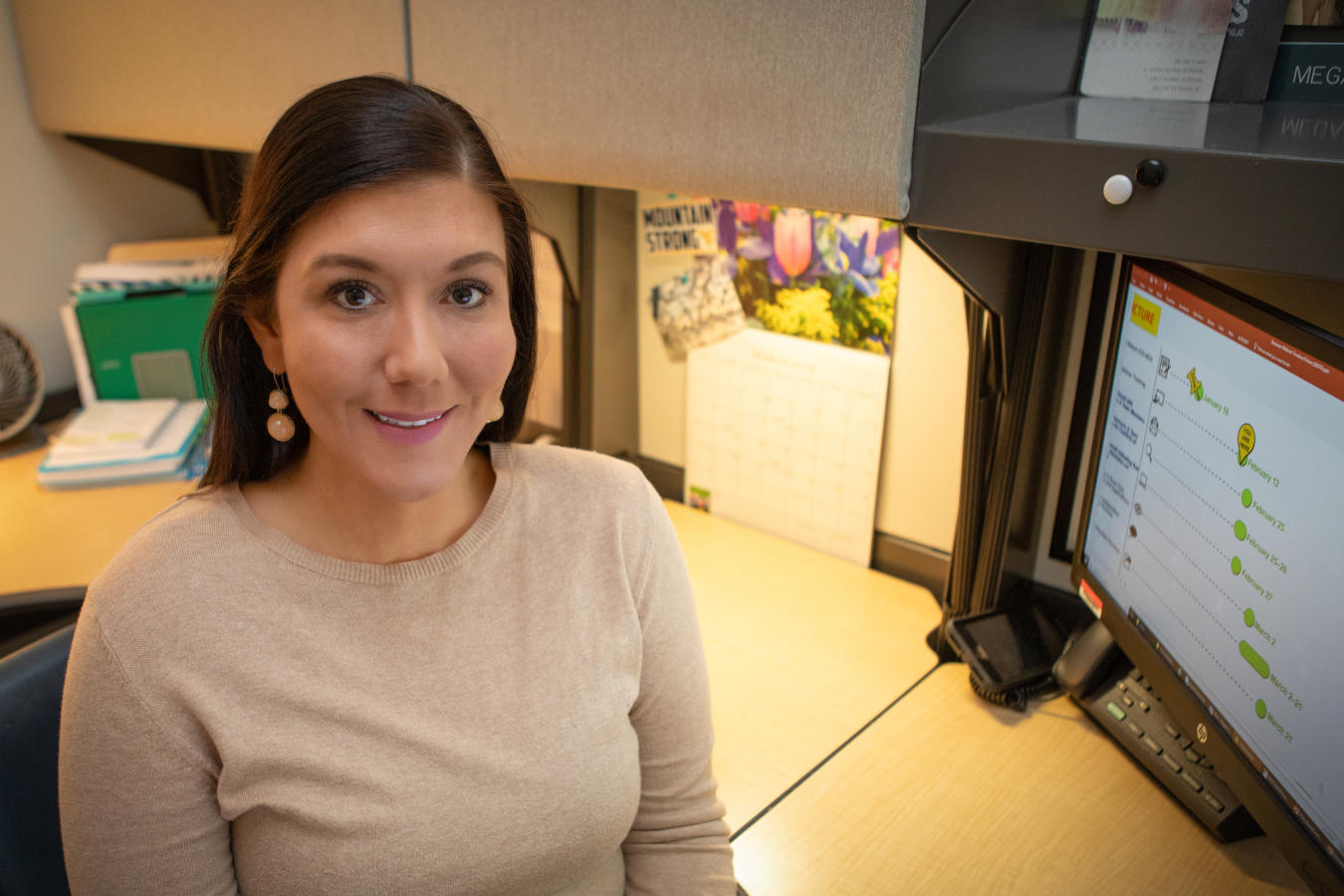Learn why Megan A. Yachini loves her job as a contractor in project management at the National Energy Technology Laboratory.
May 9, 2019
Megan A. Yachini is a site-support contractor for the National Energy Technology Laboratory (NETL) in Morgantown, WV and a Senior Business Analyst for KeyLogic Systems, Inc. Megan began her career at NETL in May 2011 as an intern. She is currently the Activity Lead for the Energy Delivery Systems Team Program and Project Support on behalf of DOE’s Office of Electricity. Megan manages the support for Funding Opportunity Announcements, Research Calls, and Lab Calls, which has resulted in the award of $230M+ in federal funding. She is also responsible for all project management support provided to Energy Delivery Systems Team. Megan has experience working in the areas of transportation electrification; battery technologies, including storage and capacity; building technologies; and combined heating and power. Megan holds a BA in Philosophy with an emphasis in Law; and a Master’s of Public Administration and Certificate of Nonprofit Management from West Virginia University.
What inspired you to work in STEM?
I initially became interested in environmental issues during my junior year of college while serving as the student liaison for a program initiated by WVU’s Office of Sustainability to promote participation and interest in conservation and sustainability. My interest deepened that summer – as a Congressional Intern, I attended briefings and hearings on energy issues, such as carbon credits. The urgency and realness of how our environment was about to change was solidified for me while listening to the Coast Guard testify about the increase in the area of the world covered by water due melting ice across the world due to climate change. While I had a new-found interest in environmental and energy issues, I was not pursuing a degree in STEM. I held the misconception that a career in STEM required a math, science, or engineering degree. It wasn’t until my internship in graduate school that I learned how there are multiple ways to pursue a career in STEM. I was responsible for developing and preparing a case study to evaluate transportation electrification projects awarded under the Recovery Act. This internship taught me the mission of the Department of Energy, the role of National Laboratories, and how I could have a career in STEM.
What excites you about your work at the Energy Department?
It’s really exciting when a researcher or a Funding Opportunity Announcement award recipient publicly releases their technology and makes it commercially available. This confirms that the work we are doing is making a real difference. I also love the relevancy of the work done by the Office of Electricity. Electricity is something we all use daily – and I have the privilege of supporting the individuals that ensure our Nation has energy delivery system is secure, resilient, and reliable.
How can our country engage more women, girls, and other underrepresented groups in STEM?
It is valuable for schools to have members of the STEM community engage with students during their developmental years. Educating women, girls, and underrepresented groups early on about what a future in STEM could include will reduce the misconception that all careers in STEM require lab coats. It’s equally important to educate individuals that their background in technical writing, economics, project management, policy, graphic design, and accounting does not limit their ability to pursue a career in STEM.
Do you have tips you'd recommend for someone looking to enter your field of work?
Never let your formal education stop you from pursuing the career you want. Education does not stop once you earn a degree, and should be a lifelong practice. Many individuals undervalue the importance of on-the-job training and independent learning. Identify a mentor early on – and remember that they do not have to have the same background or job as you. A mentor can be someone with professional development, work ethic, or a leadership style that you want achieve. If you’re truly interested in something, don’t let the fear of the unknown or requirement of hard work stop you from pursuing it.
When you have free time, what are your hobbies?
I spend most of my free time volunteering – I am an advocate for the American Cancer Society Cancer Action Network; and I am a member of the Grants Committee for Your Community Foundation of North Central West Virginia, and the Citizens Review Committee for the United Way.
Learn more about our programs & resources for women and girls in STEM at /women

